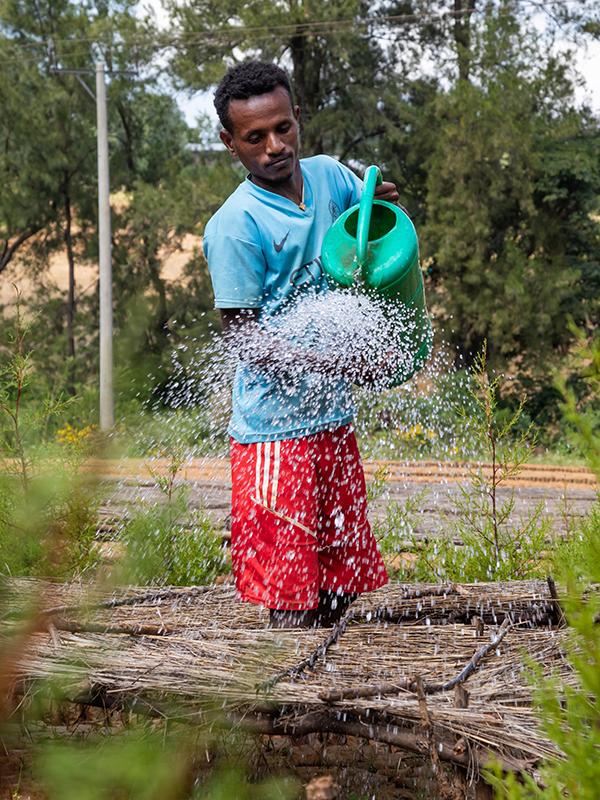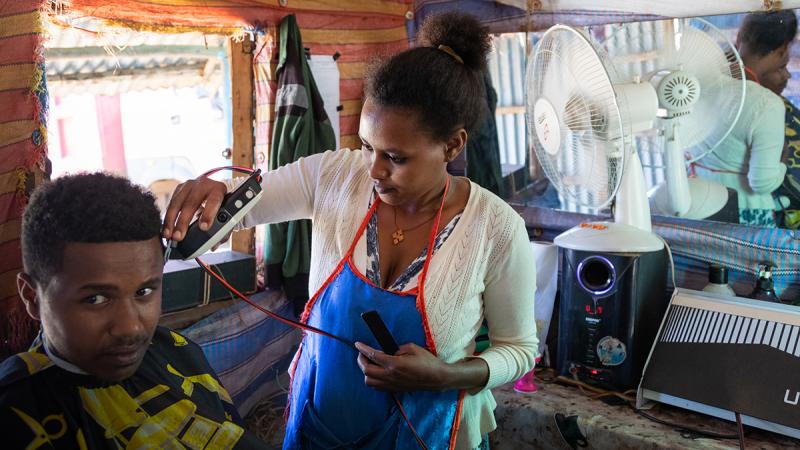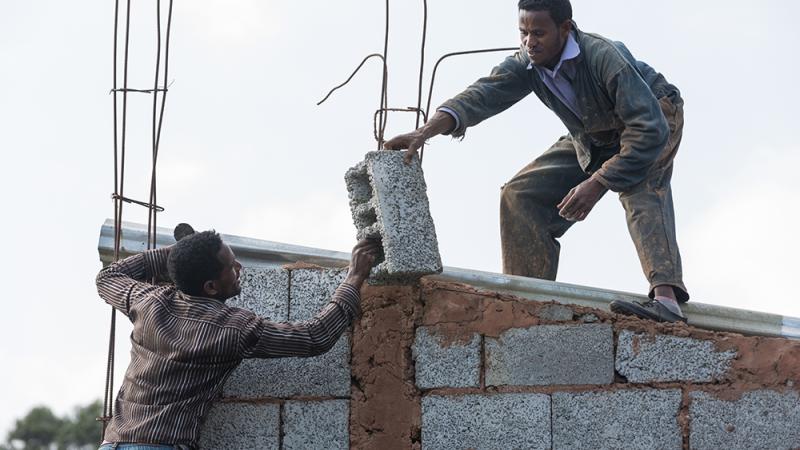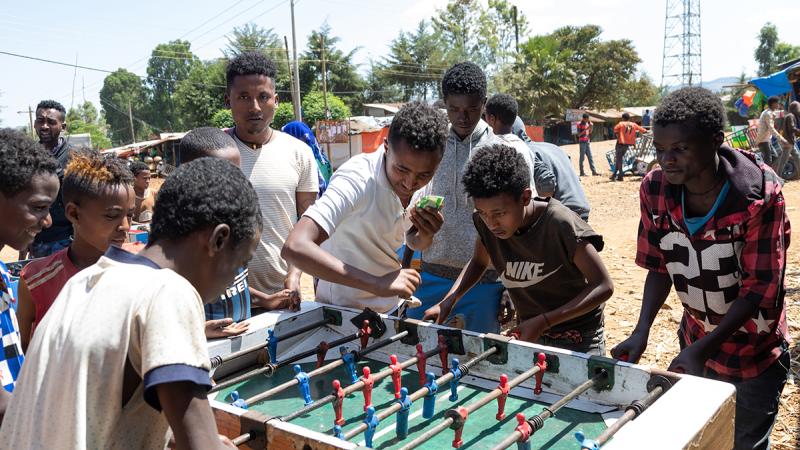Breadcrumb
While there are many studies on poverty in Ethiopia, until the Young Lives study little was known about the extent and causes of child poverty and the impacts of child and adolescent poverty on later outcomes into early adulthood.
The Young Lives approach and analysis has enabled us to pinpoint policy implications for tackling childhood poverty in Ethiopia as well as identify important avenues for future research.
Despite economic growth and a number of government programmes which have led to improvements in many areas, most of Ethiopia's children, adolescents and young adults continue to live in very difficult circumstances. In recent years, many of the challenges they face have been exacerbated by COVID-19, climate change and conflict.
Our research shows that there have been improvements in access to basic services, such as increases in school enrollment, the number of health centres, the construction of health posts, and in the massive deployment of rural health extension workers. Ensuring the quality of these services is now a key priority for the Ethiopian government, and tackling high levels of undernutrition across the country remains a critical challenge and will strongly affect children's life chances in the future.
As a holistic longitudinal study of the lives of young people as they grow up, Young Lives has made important contributions in a number of sectors as well as providing cross-sectoral insights.
The focus of the research has changed as young people have grown up, for example; when the children were infants, Young Lives focussed on nutrition and was able to document the effects of undernutrition and later on the potential for catch-up growth with important implications on the need to scale up school feeding.
As the children turned pre-primary school age, Young Lives demonstrated the beneficial and lasting impacts of early education and recommended the expansion of preschool and improving the O-class system.
As the children were of schooling age, Young Lives demonstrated how access to education had improved but challenges with quality remained, as well as the issues of child labour.
In adolescence Young Lives highlighted the growing gender disparities and challenges facing girls, including early marriage and other forms of gender-based violence.
As the children moved from adolescence into early adulthood, Young Lives has focussed on the transition from education to the labour market and family formation and has addressed issues surrounding sexual and reproductive health and mental health. During the pandemic, Young Lives carried out a five call phone survey assessing its impact and also that of drought, climate change and recent conflicts.
Research Themes
Important issues and clear patterns have emerged in our work in Ethiopia, as well as across all four study countries.
The Sustainable Development Goals (SDGs), agreed in September 2015, set out a plan of action for the world for the next 15 years. The new agenda builds on the MDGs, and seeks to complete what these did not achieve, particularly in reaching the most vulnerable. Findings from Young Lives countries suggest there are a number of key entry points in poor children’s lives that provide an opportunity for policymakers to do just that. We have aligned our research and policy themes to some of the key SDGs to reinforce our central argument that inclusive policies – of ‘leaving no child behind’ – are key to creating healthier, more productive and just societies, and breaking the intergenerational transmission of poverty.
Research Projects
Young Lives Ethiopia is an innovative longitudinal study tracking 3,000 children in 20 sites across Addis Ababa and the other five major regions in Ethiopia – Amhara, Oromia, the Southern Nations, Nationalities and Peoples Region (SNNPR), Sidama, and Tigray. Young Lives Ethiopia is funded by the Foreign, Commonwealth & Development Office to continue the quantitative survey and analysis under the Young Lives at Work project. Our smaller projects offer the opportunity for complementary research.






